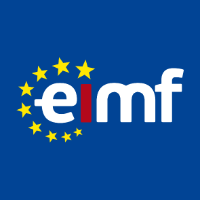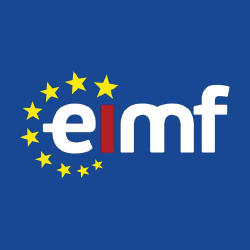
MiFID II Best Execution Practical Workshop
- Χρηματοοικ. Ασφαλιστικά Τραπεζικά
ΠΕΡΙΓΡΑΦΗ
Best execution is the achievement to provide clients with the best possible outcome for their transactions. Investment Firms need to take all necessary and sufficient steps to obtain the best possible result for the execution of the client orders, having due regard to the wider market in any relevant instrument.
“When establishing its execution policy in accordance with Article 27(4) of Directive 2014/65/EU, an investment firm should determine the relative importance of the factors mentioned in Article 27(1) of that Directive, or at least establish the process by which it determines the relative importance of these factors, so that it can deliver the best possible result to its clients.” – Recital 99 – DR 2017/565
The execution process must be reflected in an execution policy, which must specify the execution venues, and, where derivatives are concerned, must address and distinguish between Exchange Traded products and Over-The-Counter (OTC) products.
Best Execution as part of the Markets in Financial Instruments Directive Recast (MiFID II) aims to strengthen investor protection by making markets more efficient and transparent. In April 2018 the first set of reporting was delivered by firms.
ΣΚΟΠΟΣ ΣΕΜΙΝΑΡΙΟΥ
By the end of the programme, participants will:
- Understand the requirements deriving from MiFiR and Delegated Regulation 2017/590
- Apply Best Execution as per CySEC Law 87(i)/2017
- Recognize Best Execution criteria
- Construct a value-added Compliance monitoring programme via Best Execution checks
- Update and refresh their knowledge of the regulatory developments and priorities, including the impact of RTS 27, RTS 28 and Professional Execution Policy
ΣΕ ΠΟΙΟΥΣ ΑΠΕΥΘΥΝΕΤΑΙ
- Compliance and Front Office professionals
- Senior Management
- Internal Lawyers
- External Lawyers and Financial Consultants
ΠΕΡΙΣΣΟΤΕΡΕΣ ΠΛΗΡΟΦΟΡΙΕΣ
Training Outline
The requirements deriving from MiFiR and Delegated Regulation 2017/590
- Recognize a transaction
- Know the difference between transmitting and/or execution a transaction
Best Execution as per CySEC Law 87(i)/2017
- Recognize the major components of Best execution
- Measure the major factors of Best Execution
- Detect major deficiencies related to Best execution arrangements and measures
Best Execution criteria
- Client categorization requirements
- Client Characteristics and preferences
- Orders characteristics
- Execution Venues characteristics
A value-added Compliance monitoring programme via Best Execution checks
- Fairness of price
- Comparison among Execution venues
- Record-keeping
Symmetry of
- Orders with slippage
- Slippage during opening and closing a transaction
- Slippage based on volume metrics
- Slippage based on monetary value
- Slippage on stop loss and take profit
- Speed of Execution comparisons
The regulatory developments and priorities, impact of RTS 27, RTS 28 and Professional Execution Policy
- Explanation of Article 66 of EU Delegated Regulation 2017/565
- Introduction to RTS 27 – quality of execution report
- Learn step by step the requirement of RTS 27
- Introduction to RTS 28
- Learn step by step the requirement of RTS 28
Training Style
The Syllabus of the programme will be based on MiFiR and Law 87(i)/2017 requirements and discussion will take place on the latest ESMA clarifications relating to Best Execution. The programme is designed to deliver knowledge and enhance participants’ skills via short lectures and discussion sessions. There will be ample opportunity for delegates to benchmark experiences with industry peers and raise issues of most concern to their organisation, either confidentially or in open session.
Trainer
Andreas Savoullis
Andreas is the Regulatory Analyst of MAP FinTech, the winner of the best RegTech Reporting Solution Award at the Finance Magnates London Summit 2019, which is also included in the top 100 RegTech firms globally for 2020. He worked in the banking sector for several years mainly in the International as well as the Compliance department. In the last 5 years he in working in the financial sector with the last three years specializing in the Regulatory field. He is a holder of the CySEC advanced Certificate and has several publications in the RegTech Analyst, a leading intelligence platform for the global RegTech industry. He is also a holder of a Bachelor’s Degree in Business Administration as well as an MBA from the University of Nicosia. He was also awarded with the professional Banking Certificate from the American Banking Association.
Αναλυτικό Κόστος Σεμιναρίου
- € 180.00
- € 0.00
- € 34.20
- € 180.00
- € 214.20
ΠΡΟΓΡΑΜΜΑ ΣΕΜΙΝΑΡΙΟΥ
Τρίτη - 25 Οκτ 2022
Ώρα
14:00 - 19:30
Τοποθεσία:
OnLine Virtual Classroom
 Ελληνικά
Ελληνικά  English
English



 Αγγλικά
Αγγλικά
 5 ώρες
(
1 ημέρα
)
5 ώρες
(
1 ημέρα
)





























